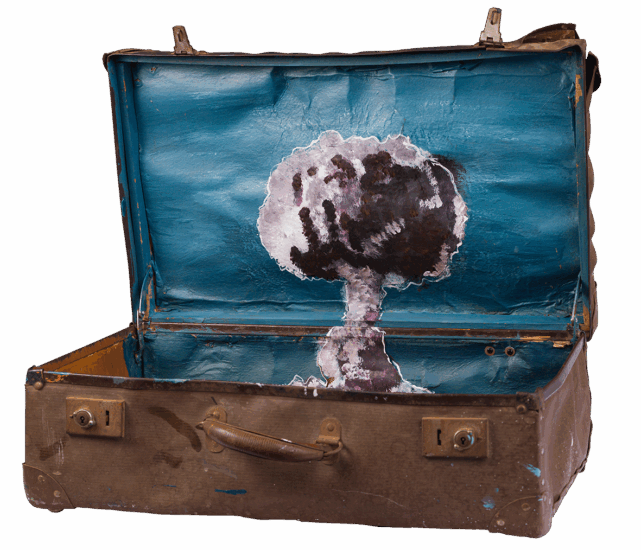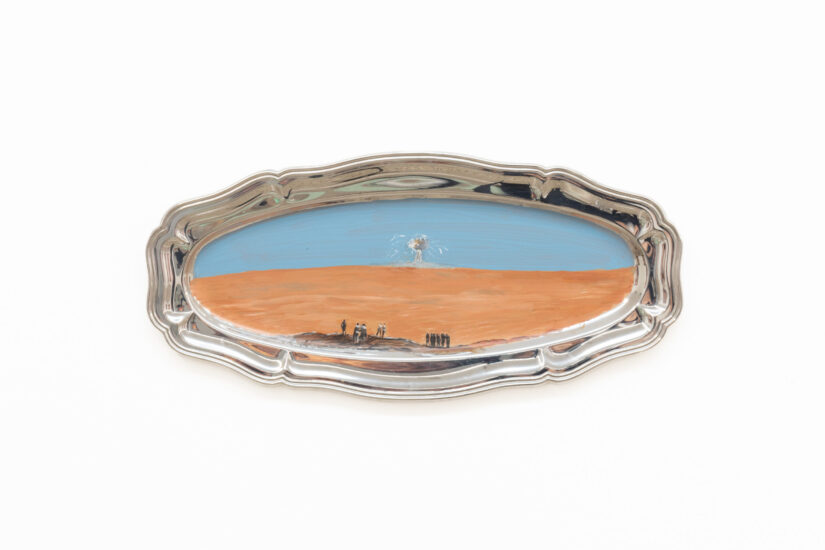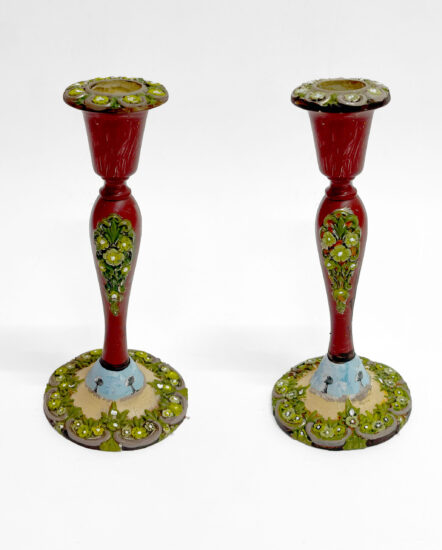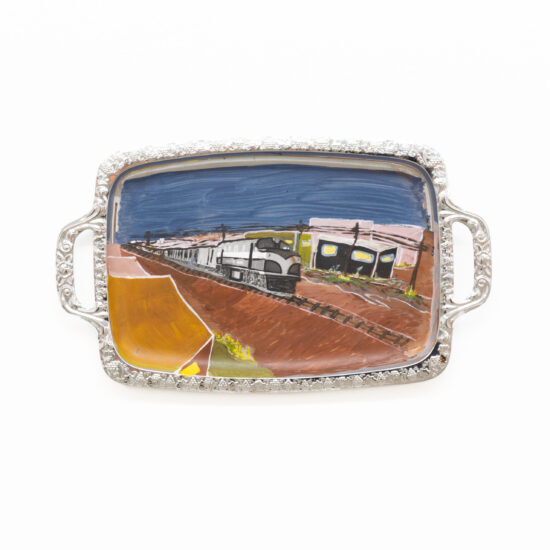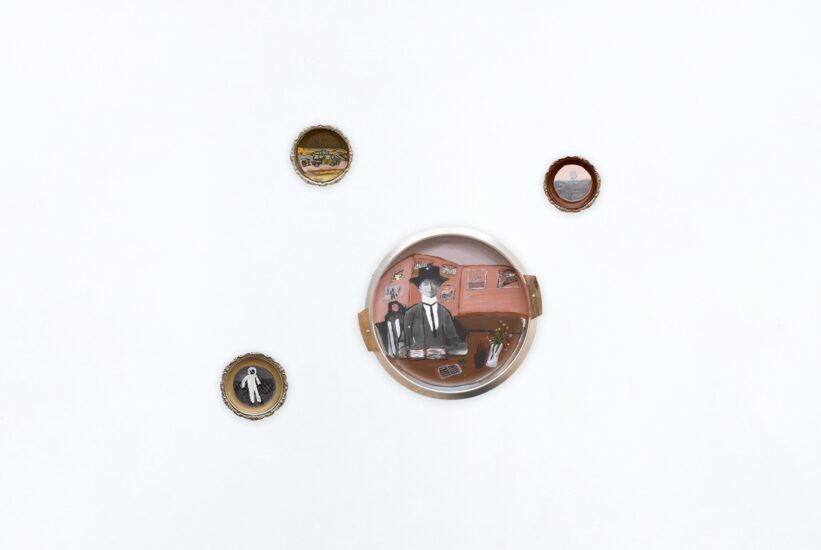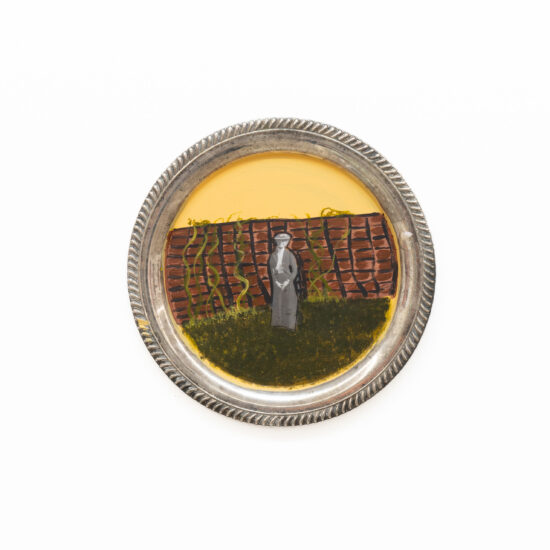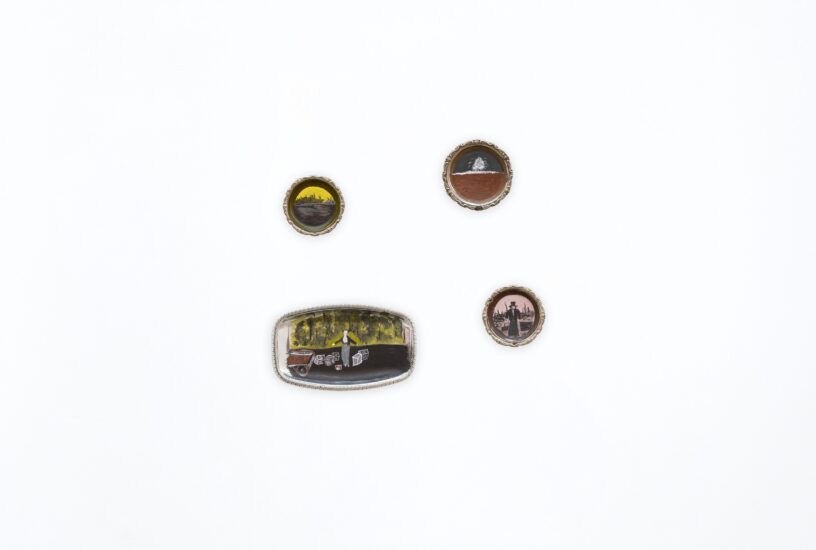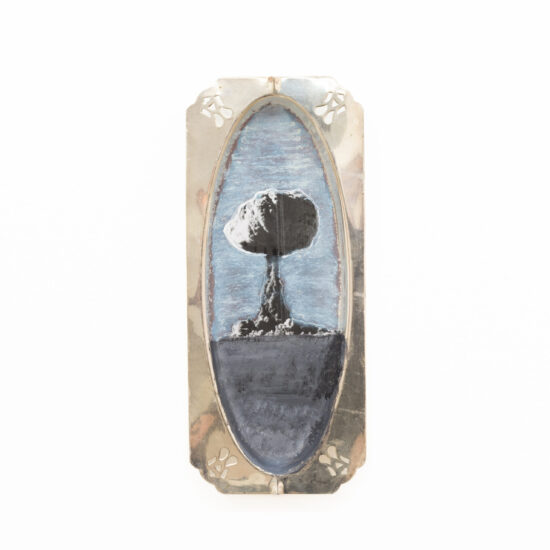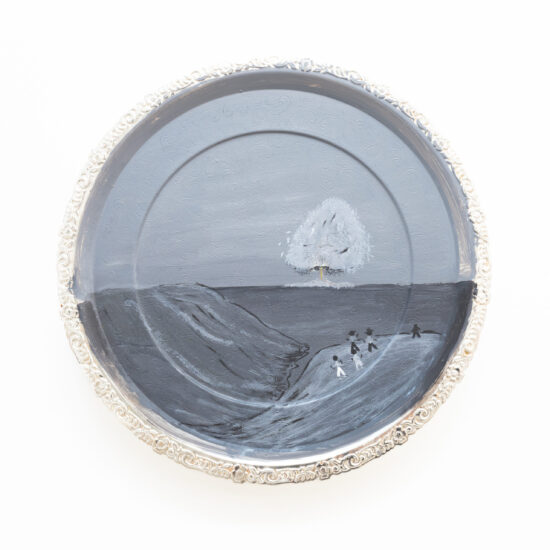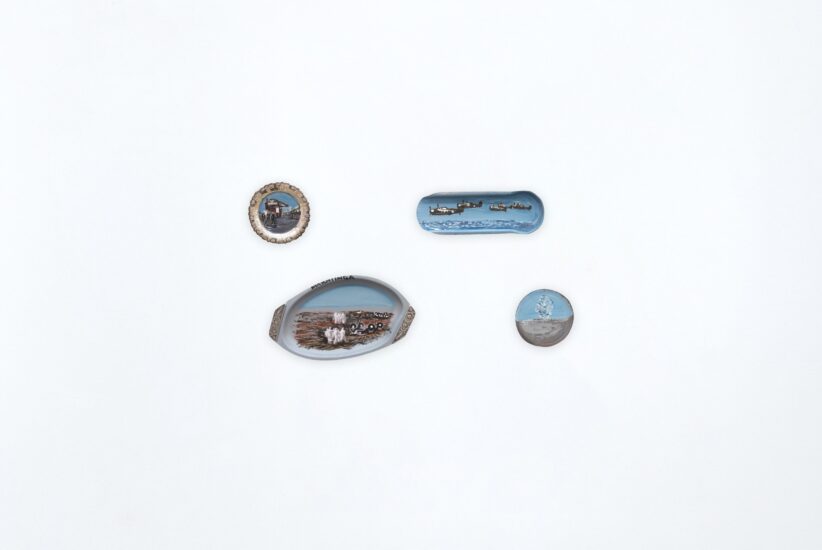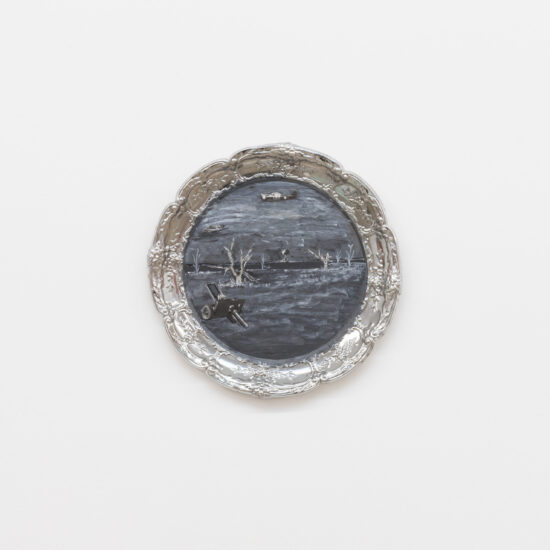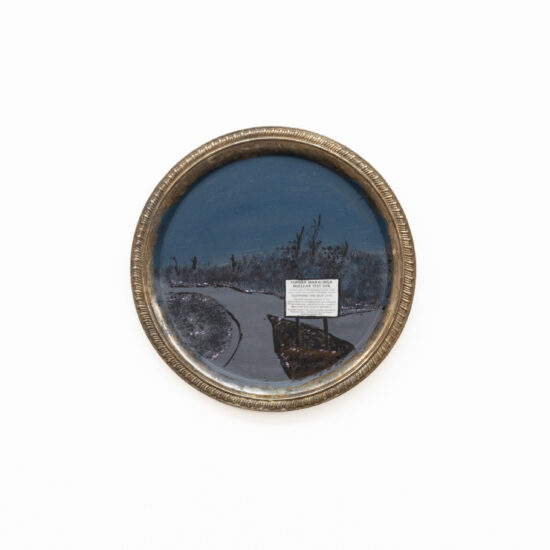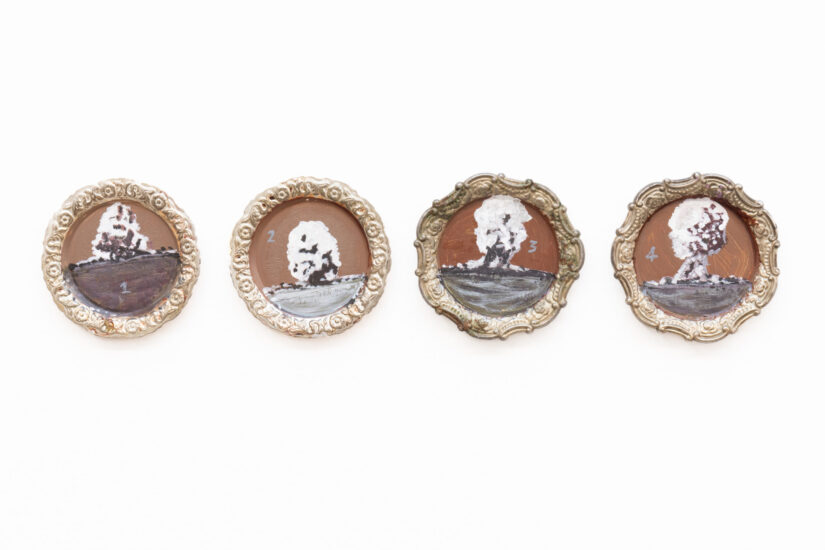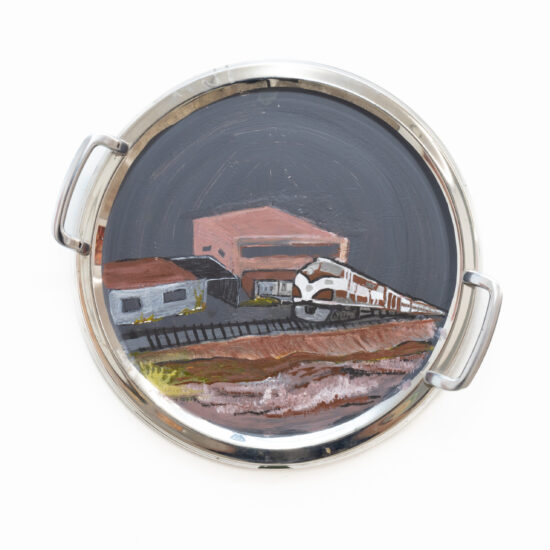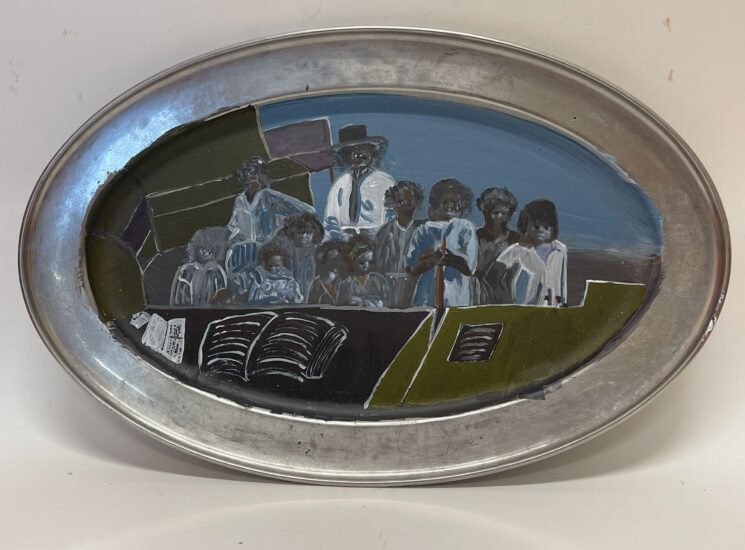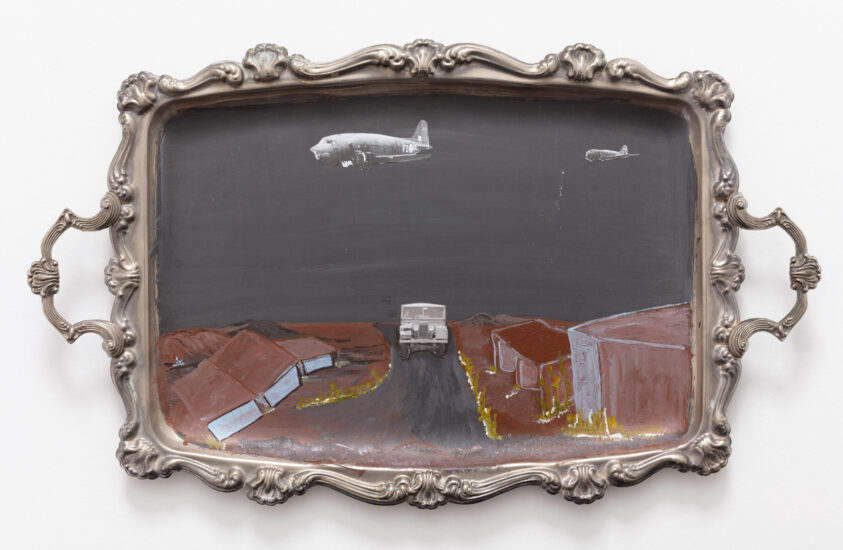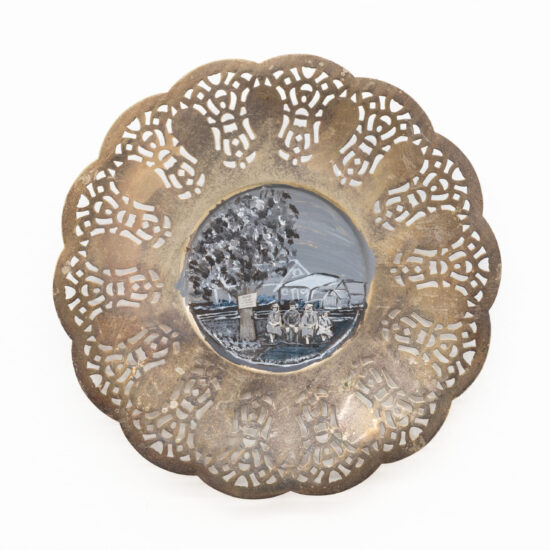Harriette Bryant (b. 1969) was born in Amata, Aṉangu Pitjantjatjara Yankunytjatjara (APY) Lands, and lives and works in Mimili Community. Throughout her childhood, Bryant journeyed across the country, from Cundalee Mission (Kalgoorlie) through Yalata, Pipalyatjara and Ooldea. These travels across communities and missions profoundly shaped her artistic vision and cultural understanding.
Working with transformed domestic objects, from silver serving trays to suitcases, Bryant subverts the familiar language of colonial domesticity. These found materials, once symbols of European settlement and propriety, become powerful vehicles for storytelling in her hands. Central to her practice is the story of Maralinga in South Australia, the site of British nuclear weapons testing between 1956 and 1963. The radioactive contamination left in its wake has had devastating and ongoing consequences for the Aṉangu people, who were displaced from their homelands and suffered intergenerational health impacts. Bryant’s work draws on this legacy of harm and survival, her alterations to household items speaking to both the displacement caused by nuclear testing and the resilience of cultural memory. Bryant’s works offers new ways of understanding the Indigenous experience of Australian history, with each of her transformed objects carrying layers of personal and collective meaning.
Bryant is a senior arts worker at Mimili Maku Arts. She has exhibited in art fairs and institutions across Australia including Sydney Contemporary (2024), Desert Mob Symposium in Mparntwe, Alice Springs (2024), It’s Always Been Always at Fremantle Arts Centre (2025), and a major presentation of works at Melbourne Art Fair (2025). She was a contributing artist as part of the collective for Mike Williams’ installation in the 22nd Biennale of Sydney: NIRIN at the Art Gallery of New South Wales, Sydney. Her work is held in public and private collections nationally and internationally, including the National Gallery of Victoria, Maitland Regional Gallery and Foundation Opale, Lens, Switzerland.


